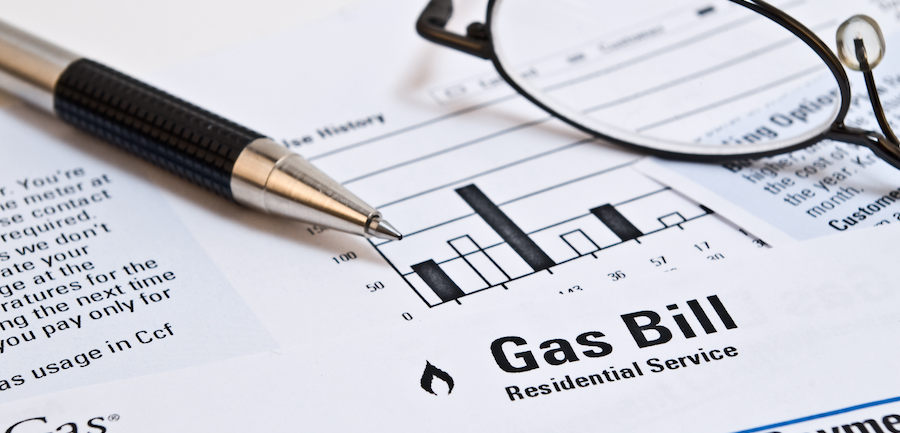
The country’s energy bills are rising to levels never seen before. But why? And is there anything we can do about it? Let’s find out more.
You probably had a nasty shock if you’ve seen your energy bills recently. But, even if you haven’t, you can’t have failed to see the news. The price of the energy we use to cook our food, heat our homes and power our devices is rising at an astonishingly high speed. This rise makes just living much more expensive and leads to disastrous knock-on effects. But why is it happening?
In this article, we’ll look at some of the reasons why your energy bills are so high. We’ll also look to see if there’s anything anyone can do to solve this problem. Let’s go.
The news
In 2019, OFGEM brought in the so-called energy price cap, setting the maximum amount energy suppliers can charge their customers for power. Twice a year, the price cap is reviewed and revised. On April 1st 2022, the price cap for customers on default tariffs paying by direct debit rose from £1,277 to £1,971 per year. That’s a rise of a staggering 54%. As awful as this is, it could be just the tip of the iceberg. Industry experts expect another price cap rise next time it is revised, for October 2022.
It’s important to say that this is not a phenomenon restricted solely to the UK. Energy prices are rising all over the world. But why? Many factors are at play, altering supply and demand to create a perfect storm. Here are five reasons why prices are rising so steeply.
1 – Climate
2020 was a particularly cold winter in Europe, causing people to use more gas. However, European countries still haven’t caught up and stored enough gas to get levels where they should be. On the other hand, the weather in parts of Asia was unseasonably warm and many people turned on their gas-powered air conditioning units.
The lack of gas in the marketplace means that demand is higher than supply. When that happens, the price goes up. Since January 2021, the cost of gas has risen by more than 250%.
The problem is, increasing gas production isn’t that simple, especially in the current political climate.
2 – Your supplier may have gone bust
Because energy suppliers are not allowed to raise their prices higher than the price cap, suppliers had to take on the burden of higher prices when the cost of energy rose. They could only pass the rise onto customers once the price cap had been revised.
Some suppliers, large and small, have not been able to take the hit and have ceased trading as a result. Since the crisis began, more than 28 energy suppliers have gone bust.
If you are a customer of a supplier that has gone bust, you get automatically transferred to a new supplier. It’s all done seamlessly, so you don’t experience any loss of power. However, you won’t necessarily be paying the same price with your new supplier as you did with your old one. So it’s likely that your bill would have gone up.
3 – Russia
A large proportion of Europe’s gas supply comes from Russia. Countries like Germany are very dependent on Russian gas, although the UK gets most of its gas from Norway.
Since 2020, Russia has decreased the level of its gas production, pushing prices higher. However, since Russia invaded Ukraine in February and countries that sanction Russia will not buy their gas, it pushes the price up even further.
4 – COVID
For much of 2020 and 2021, demand for gas was low as the pandemic kept people inside and stopped businesses functioning. However, now most people are vaccinated, and restrictions are a thing of the past, demand for gas has rocketed as the world tries to catch up with itself.
We’ve seen how there was already a shortage in gas supply, but with demand on the rise too, the price can only go one way – higher.
5 – Renewables aren’t there yet
The UK has invested billions into replacing fossil fuels with renewables, notably offshore wind power. The initiative has come a long way, and there have been some times of the year when renewables have provided more energy than coal or gas.
However, we are not at the stage yet where we can totally rely on renewables and totally switch away from fossil fuels. We still need to import gas to power our country, which means we are at the mercy of the wholesale energy market.
What can we do?
Now we know the problems; what’s the solution. Unfortunately, it’s a perfect storm of issues that are driving up energy prices. It’s almost impossible to solve, especially in the short term.
The Government is trying to provide some financial support to energy consumers in the form of a discount on council tax. However, this is promoted as a loan that consumers will need to pay back. Some experts have advised the Government to lower or temporarily scrap VAT on energy.
In the long-term, the solution is to move away from needing to buy energy on the open market. We’ve talked already about renewables, and there is the possibility of fracking to extract gas from under the ground in the North of England. However, this takes time, is expensive and is unpopular with environmentalists.
Unfortunately, the only way we can try to lower our power bills during this time is:
- Watch the amount of energy you consume and try to use less
- Switch to a lower tariff (although this is extremely hard at the moment)
- Apply to your energy company for support
Let’s hope things can return to how they were soon, or we may be looking at an economic disaster.
